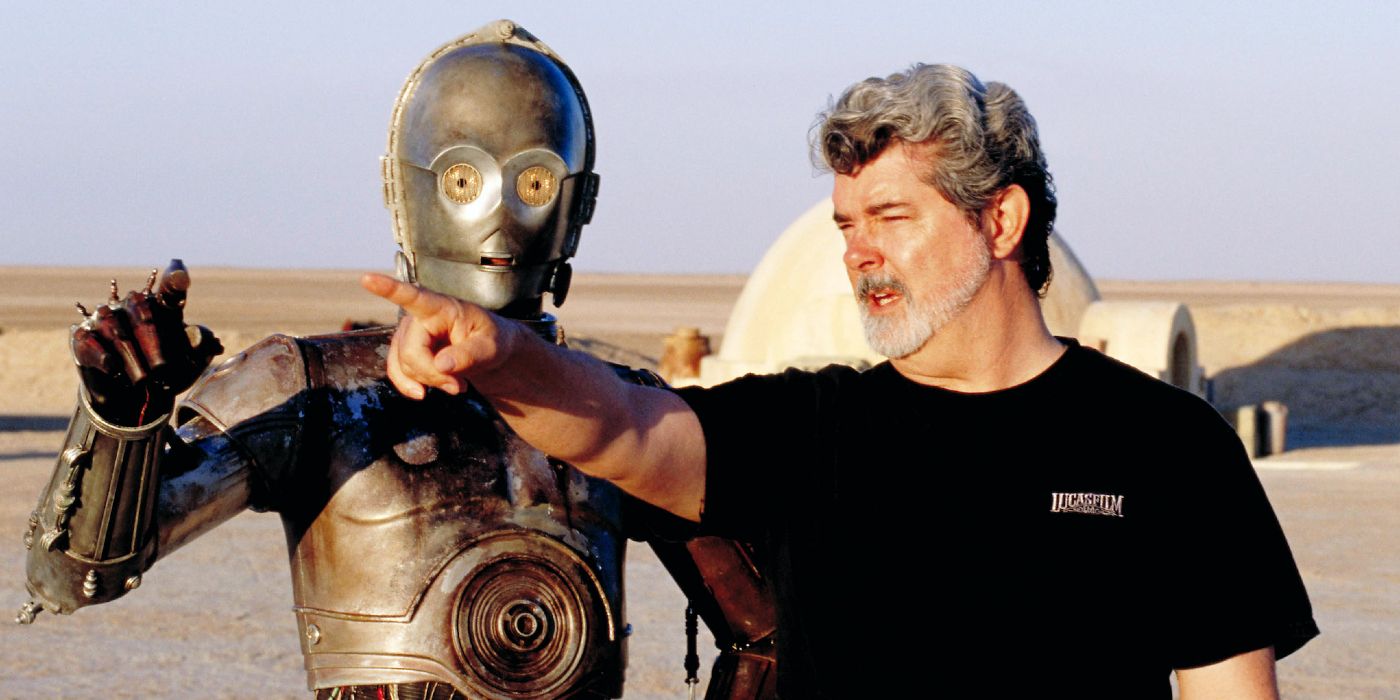George Lucas made one major mistake with the Star Wars prequel trilogy, ignoring a lesson from the original trilogy that he should not direct the movies himself. The Star Wars prequel trilogy initially received a mixed reception on its release, although its reputation has rightly improved over the years. Still, it remains valuable to look back and explore what factored into the disappointed response to the prequels.
Although Lucas insisted he was pursuing his own vision, even he had to take notice of fan reactions. This led to several pivots in the storytelling, for example; Star Wars: Episode I – The Phantom Menace introduced concepts such as midi-chlorians and the Chosen One prophecy, but Lucas chose to avoid focusing in on these, stating – in interviews in Paul Duncan’s The Star Wars Archives: Episodes I-III 1999-2005 – that doing so would be “indulgent.” But the narrative wasn’t the only problem; in fact, a major issue may have been baked into the franchise itself.
George Lucas’ Original Trilogy Rule Means He Shouldn’t Have Directed All 3 Prequels
Looking back to the original trilogy, Lucas chose a more hands-off approach by remaining in San Francisco while the movie was shot in Europe. Although Lucas received rough film cuts, he wasn’t directly involved in filming. In 1979 Gary Kurtz, who produced all three of the original trilogy movies, told the New York Times this was entirely deliberate. “It is very difficult to look over another director’s shoulder,” he observed. “The temptation is always to say, ‘I wouldn’t do it that way.’ Fortunately, George doesn’t really care to direct — he hasn’t directed a film since ‘Star Wars,’ in fact. He prefers editing. We always thought a different director should tell each of the stories.’ You get a different emphasis and approach that way.“
Kurtz’s words make complete sense, as each of the three original trilogy films feel slightly different in their direction, but still felt like they were a part of the same universe. It keeps audiences interested and allows different individuals to put their mark on Star Wars. However, this didn’t happen for the prequel trilogy since George Lucas directed all three films. Knowing that Kurtz said Lucas didn’t like directing, it’s a little odd that Lucas put himself in that position for three films. In fact, George Lucas didn’t direct one film between the first Star Wars movie (later retitled A New Hope) and Star Wars: Episode I — The Phantom Menace.
It’s interesting to speculate about why Lucas chose to break his original trilogy rule and direct the prequels. The likely explanation is that, over the years, he had felt an increasing sense of ownership of Star Wars and sought to create his definitive vision. This also fits with the changes he made with the Special Editions.
Would The Prequels Have Been Better If George Lucas Hadn’t Directed Them?
It’s difficult to say whether the prequel trilogy would have been better received at the time of their release had Lucas not been in the directing chair for all three movies. They’d have been stylistically different, and there may have been wider changes; actors admitted they found it difficult challenging Lucas with dialogue because they felt Star Wars belonged to him and they saw themselves as simply fleshing out his vision. But it must be stressed that Lucas’ prequel trilogy is not bad, it simply disappointed viewers who didn’t get what they expected. The response may well have been the same no matter who directed them.
Despite the different director’s notion from the original trilogy, it still feels special that George Lucas decided to get into the directing chair again for the prequels. Lucas was someone who largely only wrote and produced after A New Hope, and his willingness to direct the prequels shows how passionate he was about Anakin Skywalker’s origin. But it’s interesting to note the sequel trilogy abandoned this approach, taking on multiple directors – with mixed results. It’s possible Star Wars needs a more subtle balance between vision and different directors.
This story originally appeared on Screenrant


